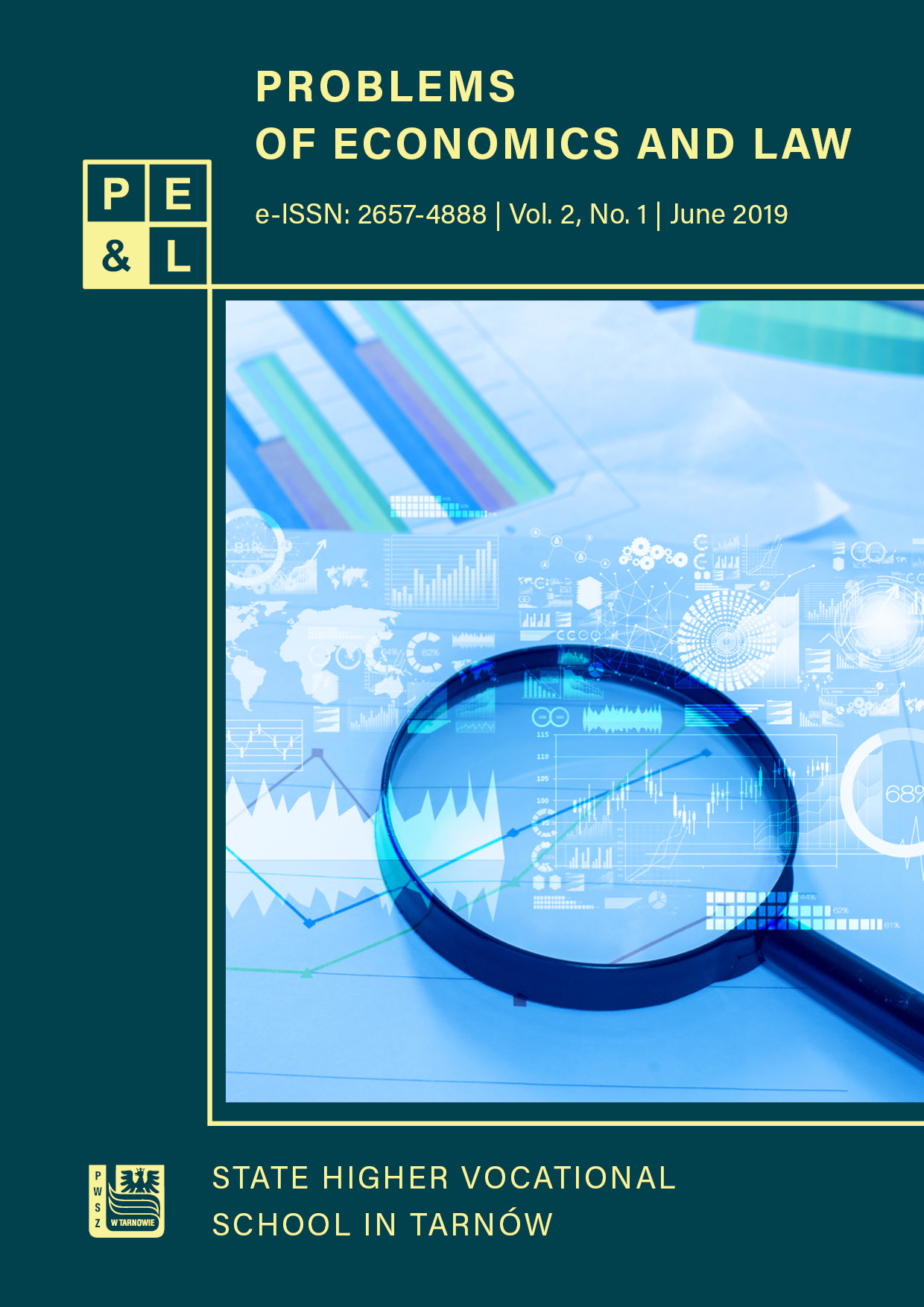Opportunities for the development of Third Age Universities as organizations supporting the elderly
DOI:
https://doi.org/10.5604/01.3001.0013.2636Keywords:
elder people, university of the third age, senior citizensAbstract
Aim: The main aim of the study was to present the opportunities posed by Universities of the Third Age in relation to elderly people and the country's economy. In the first stage of the study examined whether there are factors that could affect the number of people participating in activities organized by UTA. Therefore, it was examined causal relationships between the number of people participating in the classes organized by the Universities of the Third Age and the number of UTA, the number of professionally active people aged 50+ and the number people with retirement or pension. The research period referred to 2017. The second stage of the study referred to the identification of opportunities related to the development of UTA as an organization that supports the elderly people.
Material and Methods: The study used the Spearman rank correlation index. For this purpose, source materials and publications of the Central Statistical Office for individual voivodships were used regarding the number of universities and graduate students. Consideration was also literature and data related to the activities of the Universities of the Third Age. On the basis of the Government Program and Report on Third Age Universities, possibilities related to the development of individuals as organizations that support the elderly are defined.
Results and conclusions: The results of the analyzes show the universality of operation of universities in Poland in 2017. The data shows that in the same year in the country operated 2076 universities.The analysis of statistical data confirms that the relationship between the number of students at Universities of the Third Age and the increase in the number of such universities, as well as the number of people who are professionally active at the age of 50+ and people with retirement or pension is statistically significant. The idea of creating Universities of the Third Age is the way in which empowerment and limiting the marginalization of elderly. Universities of the Third Age create many opportunities that can improve the quality of life or increase awareness and physical activity. In addition, the functioning of these types of universities may contribute to the development of the national economy, which is one of the arguments that actions undertaken for the benefit of older people should be treated as a priority.
Downloads
References
TOWALSKI R. Rozwój sektora gospodarki społecznej w krajach Unii Europejskiej. Wnioski dla Polski, Warszawa: mimeo; 2004. Google Scholar
HAUSNER J. (2007), Ekonomia społeczna jako sektor gospodarki. Ekonomia Społeczna. 2007; 1(1): 9-14. Google Scholar
Raport Uniwersytet Trzeciego Wieku jako odpowiedź na potrzeby środowiska osób starszych, http://www.fpnp.pl/pdf/raport_uniwersytet_trzeciego_wieku.pdf. Google Scholar
SZLUZ A.M. (2016), Umocowania prawne polskich uniwersytetów trzeciego wieku. Annales Universitatis Mariae Curie-Skłodowska. Sectio J, Paedagogia-Psychologia. 2016; 1:163-171. DOI: 10.17951/j.2016.29.1.163. Google Scholar
RICHERT-KAŹMIERSKA A., FORKIEWICZ M. (2013), Kształcenie osób starszych w koncepcji aktywnego uczenia się. Studia Ekonomiczne, Uniwersytet Ekonomiczny w Katowicach. 2013; 131: 127-139. Google Scholar
BORCZYK W., NALEPA W., KNAPIK B., KNAPIK W. Standardy działania uniwersytetów trzeciego wieku w Polsce. Nowy Sącz: Ogólnopolska Federacja Stowarzyszeń UTW. Fundacja Rozwoju Ziem Górskich; 2014. Google Scholar
BORCZYK W. (2012), Sytuacja osób starszych w kontekście doświadczeń Uniwersytetów Trzeciego Wieku, http://www.wrzos.org.pl/download/Ekspertyza_2_ASOS.pdf (dostęp na dzień: 19.03.2019 r.). Google Scholar
Rządowy program na rzecz aktywności społecznej osób starszych na lata 2012-2013, 2012 Załącznik do uchwały nr 137 Rady Ministrów z dnia 24 sierpnia 2012 r., Warszawa. Google Scholar
SKIBIŃSKA E. (2007), Proces kształcenia seniorów. Rocznik Andragogiczny. 2007;2007: 57-80. Google Scholar
ADAMIEC J. (2012), Polityka przedłużania aktywności zawodowej osób starszych. Studia BAS. 2012; 2(30): 151-168. Google Scholar
Raport na temat sytuacji osób starszych w Polsce 2012. Instytut Pracy i Spraw Socjalnych, Warszawa 2012. Google Scholar
PRAUZNER T. (2011), LifeLong Learning – edukacja na całe życie. Prace Naukowe Akademii im. Jana Długosza w Częstochowie. Edukacja Techniczna i Informatyczna. 2011;6: 163-170. Google Scholar
HALICKA M. Satysfakcja życiowa ludzi starszych. Białystok: Akademia Medyczna; 2004. Google Scholar
KRYSZKIEWICZ CZ. Aktywne życie seniorów warunkiem pomyślnego starzenia się,[w:] STEUDEN S., MARCZUK M. (red.), Starzenie się a satysfakcja z życia. Lublin: Wydawnictwo KUL; 2006. Google Scholar
LEJA K. Uniwersytet organizacją służącą otoczeniu, [w:] LEJA K. (red.), Społeczna odpowiedzialność uczelni. Gdańsk: Wydawnictwo Politechniki Gdańskiej; 2005. Google Scholar
KOZIEŁ D., TRAFIAŁEK E. (2007), Kształcenie na Uniwersytetach Trzeciego Wieku a jakość życia seniorów. Gerontologia Polska. 2007, 15(3): 104-108. Google Scholar
Downloads
Published
How to Cite
Issue
Section
License
Copyright (c) 2019 State Higher Vocational School in Tarnow, Poland & Author

This work is licensed under a Creative Commons Attribution-ShareAlike 4.0 International License.





